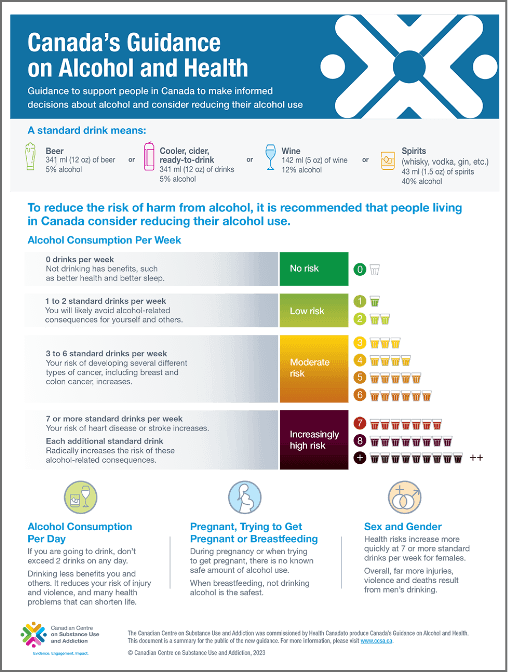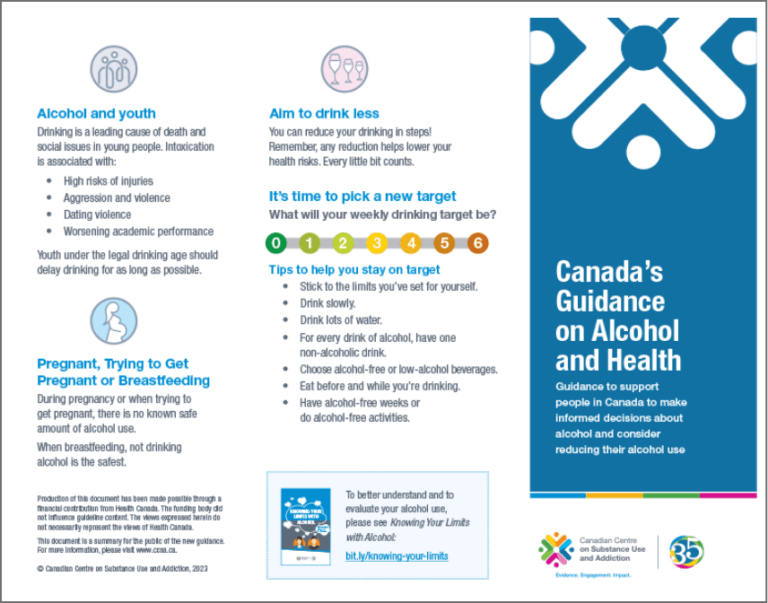Canada’s Guidance on Alcohol and Health
ANY and ALL reductions in alcohol use are beneficial to health.
Canadians have a right to know the risks that come with drinking alcohol. New information shows that even a small amount of alcohol can be harmful to health. The more you drink, the more the consequences add up.
It doesn’t matter what kind of alcohol it is—wine, beer, cider or spirits. Drinking alcohol, even a small amount, is damaging to everyone, regardless of age, sex, gender, ethnicity, tolerance for alcohol or lifestyle.
This chart is a tool for reflection. Where do you find yourself?
0 drinks per week
Not drinking has benefits, such as better health and better sleep.

1 to 2 standard drinks per week
You will likely avoid alcohol-related consequences for yourself and others.

3 to 6 standard drinks per week
Your risk of developing several different types of cancer, including breast and colon cancer, increases.
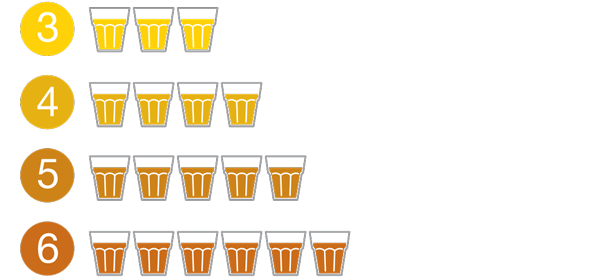
7 or more standard drinks per week
Your risk of heart disease or stroke increases.
Each additional standard drink
Radically increases the risk of these alcohol-related consequences.
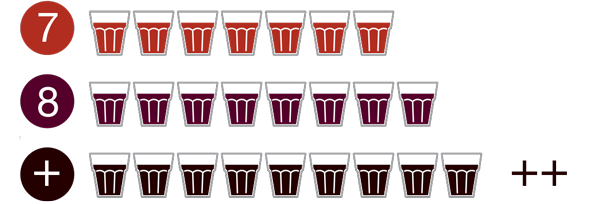
In January of 2023, the Canadian Centre on Substance Use and Addiction released Canada’s Guidance on Alcohol and Health.1 The guidance provides the latest evidence-based information about the range of risks and harms related to alcohol use. It does NOT tell people how much to drink. It meets people where they are at because everyone’s relationship with alcohol is different. Any reduction is helpful.
Tips to Reduce1
- Count how many drinks you have each day and week.
- Stick to the limits you’ve set for yourself.
- For every drink of alcohol, have one non-alcoholic drink.
- Eat before and while you’re drinking.
- Have alcohol-free days or weeks.
- Drink slowly.
- Drink lots of water.
- Choose alcohol-free or low-alcohol beverages.
- Plan alcohol-free activities.
- Think about when you typically have alcohol and make a different plan.
- Feel stressed and want a glass of wine? Instead, try to focus on another activity that relaxes you.
- Practice ways to say “no thanks”. Planning ways to deal with the pressure of declining a drink can help you stay on track. “No thanks, I have to get up early tomorrow”, “No thanks, I have to drive”, “No thanks.”
- Break up your routine. When you’re changing a habit, try to avoid common triggers.
- If you plan to go out, prepare ahead by looking at alcohol-free options on the menu.
- Going to someone’s house? Bring your non-alcoholic drink options with you.
- Give up alcohol with a friend or family member. Having a support system helps with motivation and decreases temptations.
- Have you ever noticed how much money you spend on alcohol? Take a break and find out.
- If you think you need help to make a change, speak to your healthcare provider, friends, or family.
- Check out the app/tools section
Within the guidance, the low risk category (1-2 drinks/week) is based on a one in 1,000 chance of premature death (17.5 years of life lost). A more moderate risk of one in 100 chance of premature death is associated with 3 to 6 drinks a week. After 6 drinks per week, the risk of premature death is even greater and continues to increase with every drink. No matter how much you currently consume, less alcohol reduces risk and is better for health.1
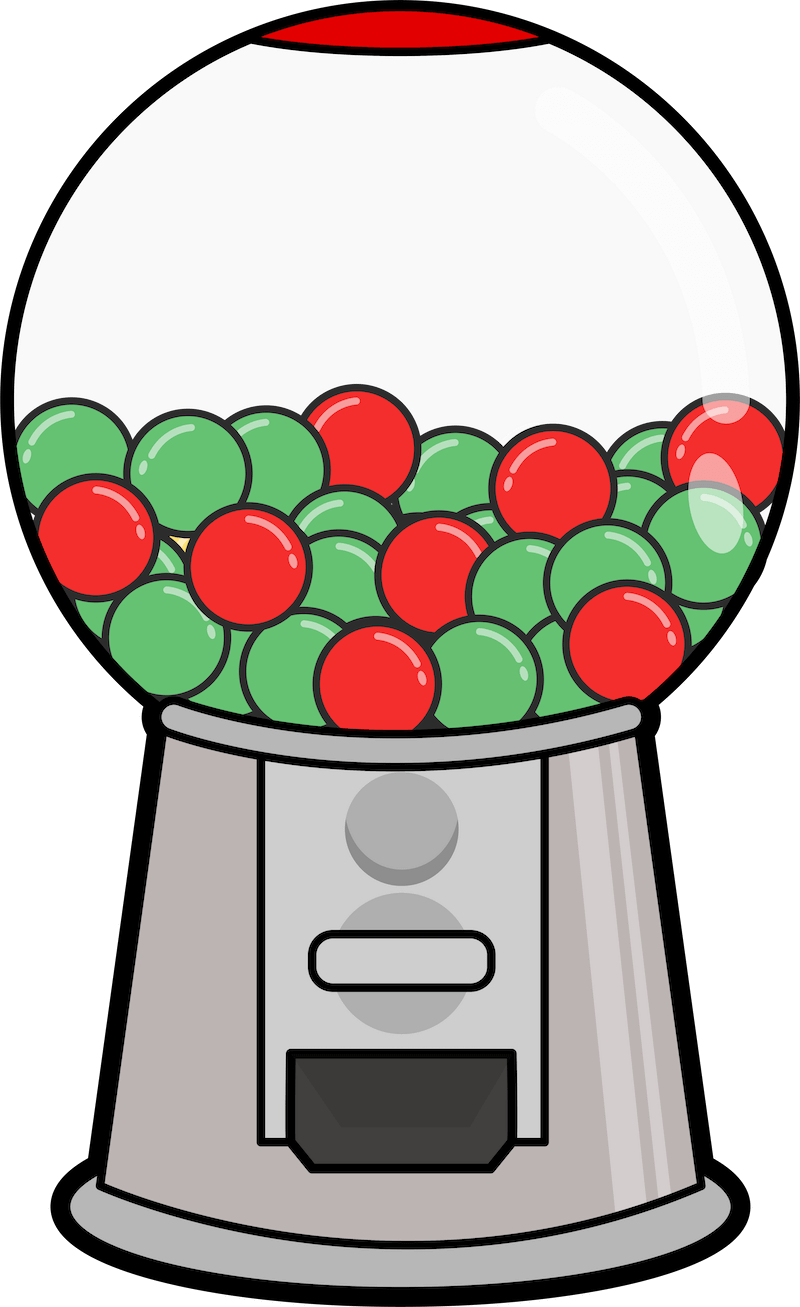
Think of the risks from alcohol like a bag of gumballs. You’ve got both GREEN gumballs (staying healthy) and RED ones (health issues, even premature death). We all start with some red gumballs in our bags because we all have some risk. Every time you take a gumball from the bag, you may grab a RED one. You might only pull out GREEN gumballs for a while, BUT the more alcohol you drink, the more you are reaching into the bag and the higher the chances of grabbing a RED one. The more you drink over time, the greater your risk.2
Want to decrease the risk for harm from injuries and violence? Keep in mind consuming more than 2 drinks per drinking occasion (per day) increases your risk of harm and risk of harming others.1
Research shows that no amount or kind of alcohol is good for your health.1 It doesn’t matter if it’s wine, beer, cider, or spirits. Even small amounts of alcohol can be damaging. This is true regardless of age, sex, gender, ethnicity, tolerance for alcohol, or lifestyle.
Drinking alcohol has negative consequences. The more alcohol you drink per week, the more the consequences add up.
(1) Paradis, C., Butt, P., Shield, K., Poole, N., Wells, S., Naimi, T., Sherk, A., & the Low-Risk Alcohol Drinking Guidelines Scientific Expert Panels. (2023, January). Canada’s guidance on alcohol and health: Final report. Canadian Centre on Substance Use and Addiction. https://www.ccsa.ca/canadas-guidance-alcohol-and-health#canada-s-guidance-on-alcohol-and-health
(2) Dr. Stephane Perron (in French), December 7, 2023 at about 16:30: Le Détecteur de rumeurs | Ep. 18 : Alcool et risques pour la santé (transistor.fm)

